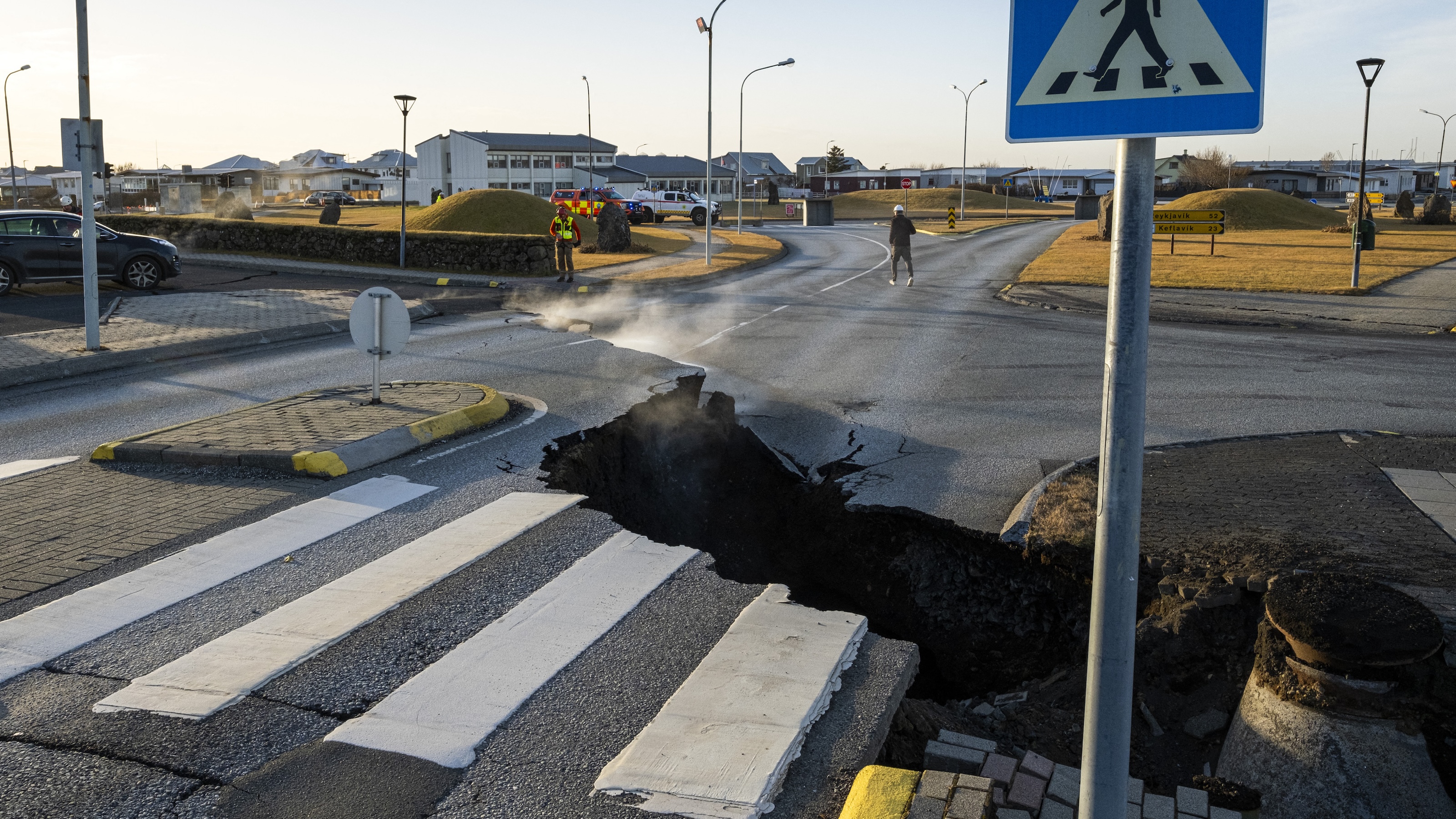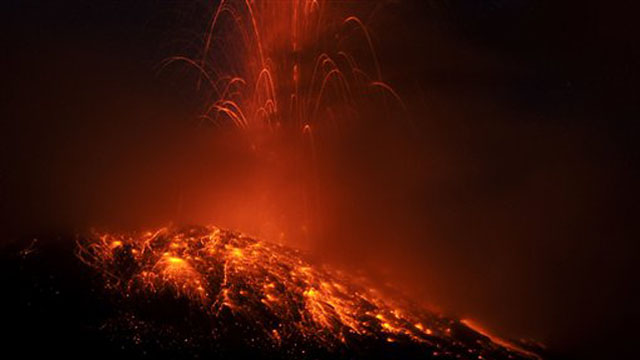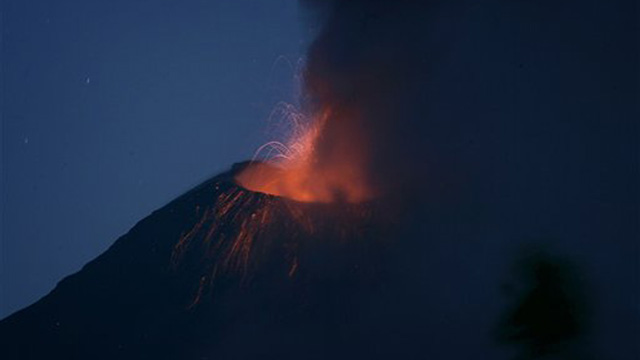Activity increasing at Tungurahua in Ecuador

Tungurahua erupting in an undated AP photo (although I think it is the current 2010 activity.)
It hasn’t really made it to much of the English-speaking news, but the current eruptive activity at Tungurahua appears to be on the up-tick. Hugo Yepes of the Geophysical Institute of Ecuador suggests that a larger eruption is not out of the question(link in spanish), but right now the activity is confined to explosions (vulcanian?) and ash fall around the region, specifically on Pillates and Choglontus overnight (2/1) from the ~ 2 km / 5 000 foot plume. Looking at the specifics(link in spanish), the Geophysical Institute is reporting 32 explosions, 30 long-period seismic events and 20 episodes of volcanic tremor in the last 24 hours. Government officials have issued a number of warnings for people living near the volcano and began preparation for evacuations. You can listen to Hugo Yepes report here(in spanish).
One of the few articles in English media regarding Tungurahua was a report about the difficultly of getting people to evacuate in these situations. We’ve heard this before, where people don’t want to leave their home/farm because thieves will steal their meager possessions and livestock. Now, that might seem crazy to you and me, to be (as one of the commenters on the article says) more worried about possessions than life, but many of the residents of this area in Ecuador live a very scant existence, so losing their livelihood (such as their animals) is tantamount to, well, death.
{soapbox}This is where the rose-colored glasses of Americans and Europeans is most maddening – these people literally have nothing if they lose their home or livestock. It is not like they have insurance on their home, or well-off parents to support them if they fail or even a rich government to kick in disaster relief money. So, sometimes you have to roll the dice and think that the likelihood of getting killed by the volcano is smaller than getting robbed if you evacuate – and in all honestly, most of the time the former is less likely than the latter. The problem lies in the few times that you’re not right – and that is the part that volcanologists try so hard to predict. It is not like they enjoy calling evacuations when they are not needed, but right now our ability to pick out the exact last moment before you should evacuate is not too sharp – it is close to trying to do surgery with a sword instead of a scalpel. Sure, it might get the job done, but the collateral damage … The long and short here is that there is much of the world where the decision-making process you might have when you evacuate your nuclear family from your beach home in Wilmington NC for a hurricane – when you can pack your car with possessions and lock the doors and set the alarm for your possessions (but not your livelihood, because you don’t live off the land of your home or have livestock most likely) is very different than someone evacuating on foot with what they can carry (most likely not much) with their children and extended family. {/soapbox}.



